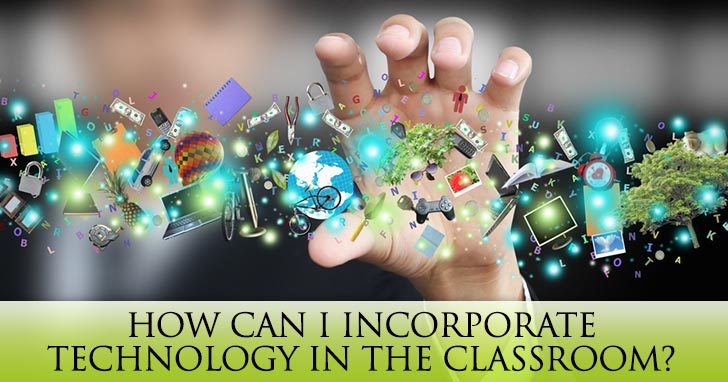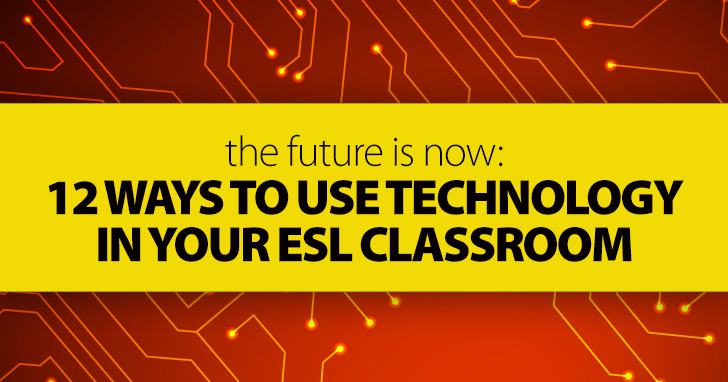Many of our students are young, and so are both surrounded by technologies with which they’re intimately familiar, and perhaps less aware of the pace of change than those a generation older. Most will also become involved in industries and workplaces which are inundated with hi-tech equipment and concepts, and this necessitates fluency in the relevant vocabulary. It also requires, I believe, that our students have had the opportunity to think through the ethical ramifications of some of the important trends currently shaping the world, so that they may make independent decisions and, in their own way, fully understand and participate in these changes.
Or, to put it more succinctly and to borrow from that great sage, Ferris Bueller:
-
1
Personalization: A Good Place to Start
It strikes me that a person’s relationship with technology is highly individual. They may have a different device than the majority, play a niche game, read specialized news sources and blogs, or form minority opinions. The connections we have with our cellphones, for example, are unique; the phone is set up just-so, we are notified with personalized ringtones, and although similar, no two users’ browsing or social media habits are identical.
To begin, then, we might personalize the issue and ask questions like these:
- How would life be without your cellphone? What would you miss the most?
- Which technologies have most changed or shaped your life?
- What one aspect of your technology environment would you change?
- Can you imagine living in the pre-electricity era? How would that be?
-
2
Brainstorm and Initial Debate
To get your students thinking about technology and, equally importantly, to gather together the relevant vocabulary, a brainstorm is useful. Elicit as many science and technology words as possible - devices, methods, inventions, concepts, theories - and then ask the students to narrow this list down and identify the three (or five, or at most ten) technologies which have most influenced humanity. Depending on how you phrase this question, you’ll get different answers. Possibilities include:
- Which technologies have done the most to make life easier?
- Which have brought the greatest happiness?
- Which could the modern world not exist without?
Or conversely, ‘Which technologies do you wish we could un-invent?’
-
3
Decide a Language Focus
You may be bringing in technology just for its own sake - certainly, these topics are fascinating enough to justify themselves - or to fill a particular language-learning need. Some ways of connecting technology with language points are:
- The wealth of vocabulary brought up by technology
- Using future forms (will / going to) and future perfect (by the time… will have)
- Using modals to express possibilities (might, could)
- Using conditionals to express potential outcomes (if… will / if… would)
-
4
Taking the Long View
One good starter topic is to put your students in the shoes of an alien expedition to Earth in the year 4000AD. Tasked with assessing humanity as a potential partner, they take the long view of human history and try to complete this sentence:
It wasn’t until humanity _______ that things really took off.
Possible answers include:
- Discovered the wheel
- Harnessed fossil fuels
- Developed the aircraft
- Walked on the moon / Mars / traveled to the stars
- Learned that love is more important than money
- Developed a universal language
- Learned to control their population
- Developed carbon-neutral living
-
5
Focus on the Internet
Vocabulary: Router, server, modem, Ethernet, exchange; security, virus, malware; blog, post, troll.
The potential for debate is endless. Here are just a few possible topics:
- The Internet needs rules, but what should they be, and who should enforce them?
- Are emails the new letters? And are texts the new emails? If so, what does this mean for human communication?
- Is there such a thing as Internet addiction? If so, how should such addicts be treated?
- What limits should there be on children’s use of the Internet?
- Under what circumstances should a website be forced to shut down?
-
6
Focus on Computers and Artificial Intelligence
Vocabulary: Keyboard, mouse, screen, monitor, printer; hard disk, RAM, USB; intelligence, emulation, the Turing Test; paranoia, prediction, overlords; the different file types and their meanings.
Debate topics include:
- Do you believe a computer will ever truly emulate a human mind (i.e. genuinely pass the full version of the Turing Test)? When might this be?
- Would you trust a computer to be in charge of running a school / a business / an airport / a combat division in wartime / a nuclear arsenal?
- What do you believe is our motivation for trying to create machines which may one day become ‘smarter’ than humans?
- Could a human and a computer ever genuinely fall in love?
- Would you like to put a computer in charge of the decision-making for your diet / fitness regime / personal relationships / professional life / marital choices?
-
7
Focus on Holographics and Vicarious Living
Vocabulary: Holographics, vicarious, remote, doppelganger, projection; virtual reality, experiential.
With the rise of VR and immersive gaming, as well as our ever-increasing interest in the lives of others, some truly interesting debate topics are possible:
- Would you like to suspend your own life for 24 hours, and simply observe someone else’s in every detail?
- Why do we often assume that the ‘grass is greener’ for others?
- What applications do you see for holographic projection?
- Can we expect to see people appearing holographically (or perhaps just by Skype or similar software) in court cases / classrooms / Congress or Parliament / on dates / when getting married / at work?
-
8
Focus on Transportation
Vocabulary: Supersonic, magnetic levitation (maglev), rocket, sub-orbital, jet; passenger, crew; transfer, node, nexus, air/space port.
We can expect the demand for high-speed transportation to increase as the 21st century continues, although this may be tempered by a new willingness to work and meet remotely. Topics could include:
- If you were an investor, would you put money into a replacement for Concorde?
- Do you believe there is a market for sub-orbital travel, which might take passengers from London to Sydney in two hours?
- Should our city build a subway? Or, how could we use technology to reduce our city’s traffic?
- Will consumers ever truly accept the idea of the ‘driverless’ car?
- What can governments do to encourage people to buy electric cars? Should they be involved in doing so?
- Would you travel by a less safe method if it meant a 90% decrease in travel time?
-
9
Focus on Communications
Vocabulary: Email, emoticon, instant messaging / text / SMS, attachment, Outlook; spam, net-bot; video-conferencing, remote working.
Many of our current students will be using new and perhaps unforeseeable communications methods in their adult lives. Topics include:
- Will texting replace emailing? Or might they come to be regarded as the same?
- Should governments have the power to read what you send? If not, should they have such a power over those with a criminal record? Or over anyone?
- When is an old-fashioned letter still the right way to communicate? Will letters fall out of fashion entirely, or will we keep them for special purposes?
- What might the trend towards text-speak and other forms of abbreviation mean for the English language (or the students’ L1)?
- Should we simply accept that no communication will be truly private, and consent to live our lives under a degree of scrutiny?
-
q
Focus on Entertainment
Vocabulary: Gamer, 3-D, IMAX, Dolby, immersive, interactive, role-playing, addiction, carpal tunnel.
I never fail to elicit strong and cogent responses to questions such as these:
- What do you predict for the future of online gaming? What might be the successors to the X-Box and Playstation?
- We’ve had IMAX, and 3-D, and attempts at multi-sensory experiences in the theater. What new technologies might come next?
- What might be the highest-grossing movie of 2030? What storyline might it have? What might it offer the audience that a contemporary film does not?
- Should actors be paid the huge sums they currently are? Could you devise a more equitable funding solution for mass-market media?
- Do you foresee the death of the book, as we currently know it? What implications might this have? Will people read more, or less in the future?
- Are you concerned that violent video games promote violent behavior?
- Do you believe that video games can be addictive? If so, what can be done?
- How can we prevent young people from playing games with inappropriate or harmful content?
-
w
Focus on the Mind
Vocabulary: Cerebral, mental; parts of the brain (hippocampus, frontal lobes etc); implant, subcutaneous, surgical, chip, processor; behavioral modification; IQ, EQ; performance enhancement; neurochemicals, hormones, stimulants.
A number of recent movies have tackled the idea of enhancing the capacity of the human mind, either through implants and surgery, or through taking stimulants or growth chemicals. The possibilities are ripe for classroom discussion or student writing:
- If the opportunity arose for you to have surgery to improve your decision-making / reduce your impulse to eat candy or drink alcohol / make you funnier or more social, etc, would you consider it?
- What are the implications of living in a society where a minority of people have been cerebrally enhanced? Would they naturally become the elite leadership?
- Should we deliberately stimulate the brains of young people so that they learn as quickly as possible (perhaps to the extent of leaving high school 2-3 years early)?
- Should those with cerebral enhancements be allowed to take part in competitions (chess championships, math olympiads, etc)? Should they receive different school and university exams to those without enhancements?
- What are the dangers of walking around with technology implanted in your head?
-
e
Focus on Ageing and Mortality
Vocabulary: Senescence, degradation; DNA, RNA, replication, copying errors; cryogenics, reanimation, hibernation; immortality.
Thinkers such as Ray Kurzweil and Aubrey de Grey are working on ways to prolong human life spans and avoid the ravages of ageing. These are topics which effect everyone, and my students are generally very engaged in debates such as:
- Would you like the opportunity to live for as long as you chose to?
- If such technology becomes available, should certain special, famous or gifted people be given priority?
- Why should those who opt to be frozen after death expect for future humanity to go through the expense of waking them up and helping them to adjust?
- Can freezing/hibernation be regarded as ‘life’?
- What might happen to human society if people are routinely living to 150 or 200 years old? Would some form of enforced or non-consensual population control become inevitable?
- What would you do in 125 years that you can’t do in 70?
It combines the use of demanding language with the requirement to think openly and quickly; students also come to see the value of having their views challenged by those from a different background, which engenders self-analysis and cross-cultural respect. I encourage you to try one or more of these topics with yours students, and simply see where it takes you.


